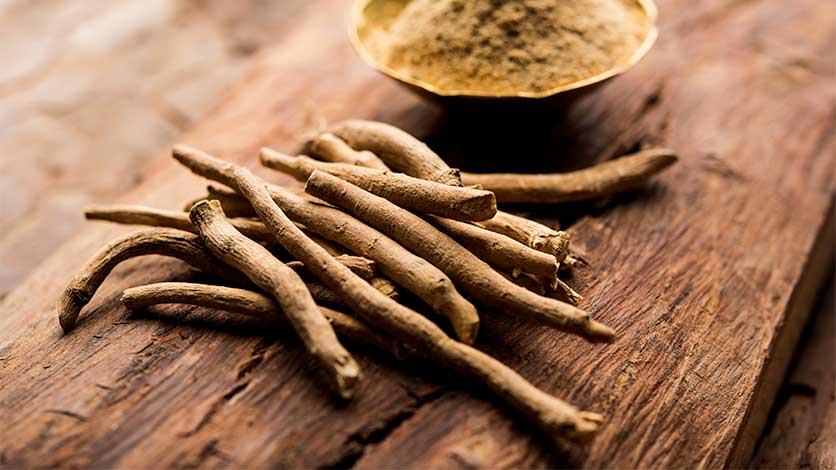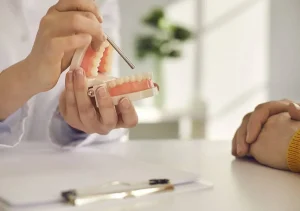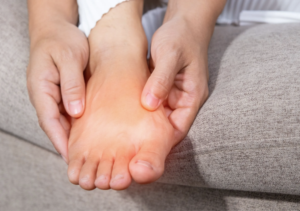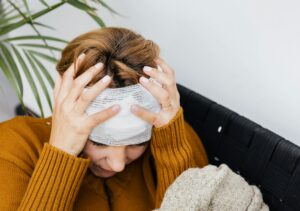Ibogaine is a mind-altering substance found in the roots of the Iboga plant, which grows in West Africa. Many see it as a possible treatment to help treat addiction to drugs such as heroin, cocaine, and alcohol. They believe it may reduce the difficult withdrawal symptoms and strong cravings for these drugs. However, ibogaine is illegal and not approved for medicinal use in many countries because there are still safety concerns regarding consumption. At the end of this blog, you will learn about the use of ibogaine, how it works for addiction, and the potential dangers of using it.
How Is Ibogaine Used?
Ibogaine is a psychoactive compound extracted from the roots of a plant called Tabernanthe iboga. It is consumed orally by dissolving ibogaine hydrochloride powder in water or juice. For treating drug addiction, a single large dose of ibogaine is taken. The typical dose range is 10-25 milligrams of ibogaine per kilogram of the person’s body weight. After taking this dose, the person experiences a long psychedelic state that lasts around 24-36 hours. That is the primary way ibogaine is used- by taking one large oral dose to induce an extended psychedelic experience.
Benefits of Ibogaine Treatment in Addiction
Ibogaine therapy can help people deal with addiction in numerous ways. On average, people experience significant improvements right away in their overall functioning, including helping with issues like PTSD, depression, and anxiety. Here are some of the main benefits:
-
Brain Reset
Ibogaine treatment has the remarkable ability to reset the brain’s neural circuitry to a pre-addicted state by rebalancing disrupted neurotransmitter systems. It reverses deep-seated neurological changes in reward pathways caused by prolonged substance abuse. This neurological rebalancing alleviates the physiological underpinnings, allowing the brain to return to homeostasis, free from physical cravings and dependence. The reset essentially reverses the neuroadaptations in the brain that are fundamental drivers of addictive behavior.
-
Reduced Withdrawals
A major benefit of ibogaine is its unparalleled efficacy in reducing acute withdrawal symptoms when quitting addictive substances such as vaping. Ibogaine can alleviate up to 95% of the highly uncomfortable physical and psychological effects experienced with opioid withdrawal. This makes the initial detoxification phase significantly more manageable compared to conventional approaches, easing individuals through the crucial initial hurdle of getting clean. By minimizing withdrawals, ibogaine empowers people to get through the most difficult first step.
-
Disrupts Addictive Behaviors
Research shows ibogaine disrupts deeply ingrained addictive behaviors and compulsive drug-seeking patterns across various substances like opioids, stimulants, nicotine, and alcohol. It weakens well-established conditioned associations and maladaptive habits central to the addictive cycle. Breaking these entrenched patterns provides a window of opportunity to escape the behavioral reinforcement that perpetuates addiction long-term. This interruption of the conditioned responses allows for new patterns to take hold.
-
Psychological Insights
The oneirophrenic dreamlike state often yields profound psychological insights into one’s life experiences and the emotional roots of addiction. This consciousness-expanding journey promotes greater self-awareness, self-acceptance, and processing of unresolved traumatic events, emotional wounding, guilt, or shame that may fuel substance abuse. Gaining this deeper understanding of oneself and the psychological underpinnings is vital for lasting change.
-
Mindset Restructuring
Following the peak psychedelic effects, an insightful introspective phase allows individuals to re-evaluate their behaviors, core beliefs, and sense of self from an impartial, objective perspective. This process of deep personal reflection enables cognitive reframing and restructuring of limiting mindsets instilled over years of addiction. The resulting transformative shifts in one’s psyche reinforce motivation and commitment to living an authentic, sober life long-term.
-
Holistic Metamorphosis
Ultimately, ibogaine treatment catalyzes a powerful holistic metamorphosis by harmonizing the psychological, emotional, and neurological domains of an individual’s being. The biological brain reset synergizes with psychological introspection, promoting integrative healing on multiple levels. This facilitates profound personal transformation that equips individuals with self-acceptance, resilience, and invaluable tools to initiate and sustain their recovery journey.
How Ibogaine Impacts in Addiction Treatment
Ibogaine is a powerful psychedelic drug that causes mind-altering effects lasting for many hours. When you take ibogaine, it interacts with different systems in your brain and controls things like dopamine, serotonin, nicotine, GABA, and muscarinic receptors.
The effects of ibogaine happen in three distinct phases:
- Phase One—The Visions: The first phase begins 1-3 hours after someone takes ibogaine. During this 4-8-hour period, they will likely keep their eyes closed. They experience intense hallucinations where they see vivid imaginary scenes or patterns. Their visual perceptions of reality become significantly distorted and altered from normal.
- Phase Two—The Inward Journey: The second phase starts around 4-8 hours after taking ibogaine. This phase can last a long time, anywhere from 8-20 hours. During this lengthy period, the person goes through deep inward exploration and reflection. They tend to re-examine memories from their past and process intense emotions they may have buried before. This provokes a lot of self-reflection and contemplation about their life.
- Phase Three—The Comedown: Approximately 12-24 hours after originally taking ibogaine, the person enters the third and final phase as the drug’s effects start wearing off. During this phase, they feel mentally and psychologically drained from the powerful experience they went through. They need more sleep and rest as their consciousness gradually returns to normal. The vivid hallucinations have faded away completely at this point.
What Are the Health Risks of Using Ibogaine Drug?
Ibogaine is a powerful psychedelic drug that can help treat addiction. However, taking ibogaine carries extreme risks that can potentially be life-threatening. The dangers are heightened by the unregulated nature of many ibogaine clinics, where proper safety protocols and emergency care are often lacking. Allowing ibogaine use only in legitimate, well-regulated medical facilities could reduce risks.
Even under medical supervision, serious complications can arise from ibogaine use, including:
- Kidney and liver toxicity
- Potentially fatal cardiac arrhythmias
- Seizures
- Respiratory depression
- Severe gastrointestinal distress
- Paralysis and loss of muscle control
- Terrifying hallucinations and psychosis
- Dangerous interactions with other drugs
- Sudden death from cardiac arrest
Appropriate dosing and administration methods are not fully understood. Ibogaine should only be taken under direct supervision from professionals aware of the potentially deadly risks. Much existing research is limited to anecdotal reports and open-label studies. More diligent clinical trials are needed to assess ibogaine’s purported benefits against its proven hazards. The drug acts as a stimulant and has been linked to causing irregular, life-threatening heart rhythms even in medical settings.
Conclusion
Ibogaine may help people overcome drug addiction, but it needs to be used carefully under medical supervision because it can be unsafe. Taking ibogaine alone is not enough to cure an addiction. A person needs to get counseling and make lifestyle changes, too. The experience of taking ibogaine can help people understand why they became addicted and allow them to develop a new mindset. However, beating addiction for good requires a commitment to a full recovery program. Ibogaine could give someone’s brain a reset, but they will still need support and hard work to successfully fight the addiction over the long run. With professional help, ibogaine combined with counseling and lifestyle changes may help lead to sobriety.




